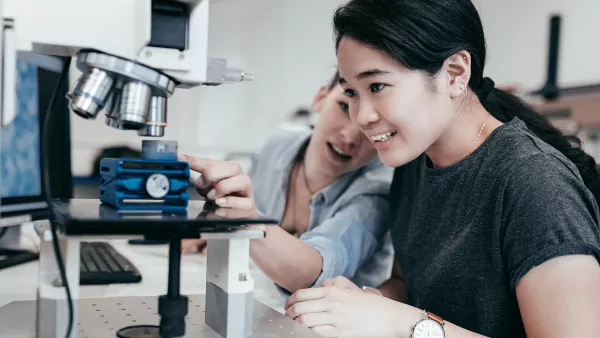Profile
In the materials testing laboratory, the most important mechanical material properties are analyzed from the second semester onwards. The focus in the higher bachelor's semesters and in the master's programs is, for example, on failure analysis, the investigation of lightweight materials (composites) and the materials testing systematics of 3D-printed structures.
Equipment
- Tensile testing machine 50 kN with extensometer and transverse strain extensometer as well as the possibility to connect measuring hardware from other manufacturers, e.g. for strain gauge measurements
- Tensile testing machine 30 kN with temperature chamber
- Manual and fully automatic hardness testers for the most common methods
- Pendulum impact tester for notched bar impact testing
- 3D laser scanning and digital microscopes
- High-speed camera and digital microscope system (recording up to 230,000 images per second)
- Various metal and stereo microscopes
- Scanning electron microscope with digital image analysis system and EDX analysis
- Glow discharge spectrometer with depth profile analysis option
- Thermal analysis system (DSC and TMA)
- Fully automatic climate change tester
- Climatic chamber (temperature range -10 to +100°C, humidity range 10 to 90% RF)
- Industrial freezer with heated viewing window (temperature range 0 to -42°C)
- Various laboratory furnaces (temperature ranges up to 1150°C)
- Various preparation devices for sample preparation (e.g. for metallography)
Contact & People
General contact details
| Phone | |
|---|---|
| Room | L 005 - L 018 |
| On campus |
Building L
Doggenriedstr. 40
88250 Weingarten |
| Postal address |
RWU Hochschule Ravensburg-Weingarten University of Applied Sciences Materials testing P.O. Box 30 22
88216 Weingarten Germany |
Laboratory Manager
Lightweight construction and structural materials

Laboratory Team
Materials testing, metrology
